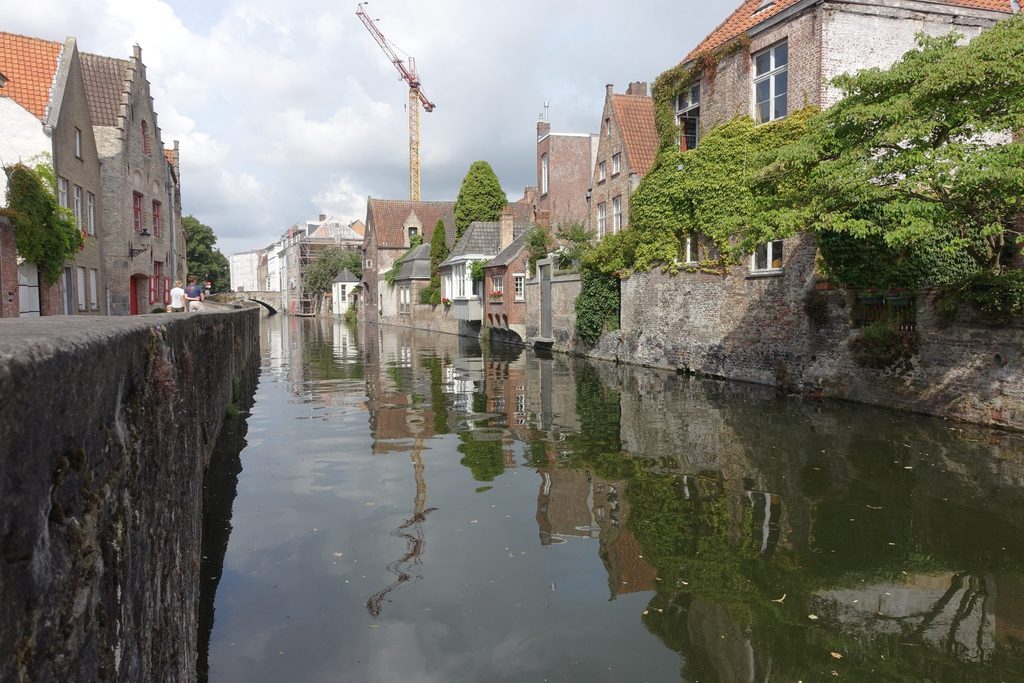With much of southern Europe again ravaged by forest fires this summer, established tourism trends are shifting and could swing further as holidaymakers head for areas of less intense heat and less affected by water shortages.
The changes could be a boost to the economies of countries such as Belgium, with a recent study carried out by economists for the European Commission making clear the gains that changing travel trends could bring to the tourism sectors in northern European in the future.
Scientists from the World Weather Attribution (WWA) recently argued that heatwaves are becoming more intense due to human-induced climate change and that the extreme heat now seen in southern Europe will likely occur every two to five years in a world 2°C warmer than pre-industrial levels.
This would mean that the astounding scenes of tourists being forced to leave belongings behind to flee forest fires and fierce hailstorms denting cars and caravans become more commonplace, detracting from the appeal of these destinations.
All points north
Using data from 269 European regions over a 20-year timespan, the Commission study predicts that holiday destinations in the south will become less popular as tourists increasingly opt for northern countries such as Belgium, Germany and Scandinavian states.
"Our findings reveal that climate conditions significantly affect tourism demand. There is a clear north-south pattern in tourism demand changes, with northern regions benefitting from climate change and southern regions facing significant reductions in tourism demand," the study read.
This pattern is more acute for higher warming levels scenarios (3°C and 4°C) than for those of 1.5°C or 2°C, such as are currently discussed in climate forecasts. In Belgium's case, the number of tourists would likely increase between 0.38% with a warming of 1.5°C, by 0.88% for a warming of 2°C and by 2.9% (warming by 4°C).
"If you can no longer hike or cycle in the Dolomites in summer due to too hot weather, our regions can be an alternative. Belgium has more to offer than just art cities and we should promote that," Jan van der Borg, professor of tourism (KU Leuven), told De Standaard.

Not famed for stifling heat, countries like Belgium could become tourist favourites. Credit: Dylan Carter/The Brussels Times
Similar increases are predicted in neighbouring countries: rises of between 1.3 and 4.3% are expected in the Netherlands, between 0.95 and 3.91% in Germany and up to 6.83% growth in Denmark for a warming of 4°C. In Cyprus and Greece meanwhile, tourist numbers are predicted to drop by around 8% for a warming of 4°C. Importantly, that is the year-round average – in the summer months, the drop would be even greater.
The researchers highlighted that coastal regions will be most affected, especially during the summer: for higher warming scenarios, a decrease of 9% is predicted for the Greek Ionian Islands whilst an average increase of +16% is expected in west Wales.
However, the study highlighted that the overall climate impact under every warming scenario on European tourism will not see a decrease in demand. On the contrary, it is projected to demand by 0.35% to 1.58%, depending on the warming scenario.
Related News
- Belgium increases efforts to tackle wildfires as Southern Europe burns
- How to spend a day in Bruges (in pictures)
It added that the seasonal distribution of tourism demand would also change – for example, the month of April is projected to record the highest increase in tourist flows in Europe, growing by 1.96% in the 1.5°C warming scenario, with an increase of 8.89% in the 4°C scenario.
While the decline in summer demand in southern regions can be partially offset by increases in spring, autumn, and winter, during which temperatures will likely be milder here, this shift will be an overall economic disaster for countries like Greece and Spain, where the tourism sector accounts for a significant share of GDP.

